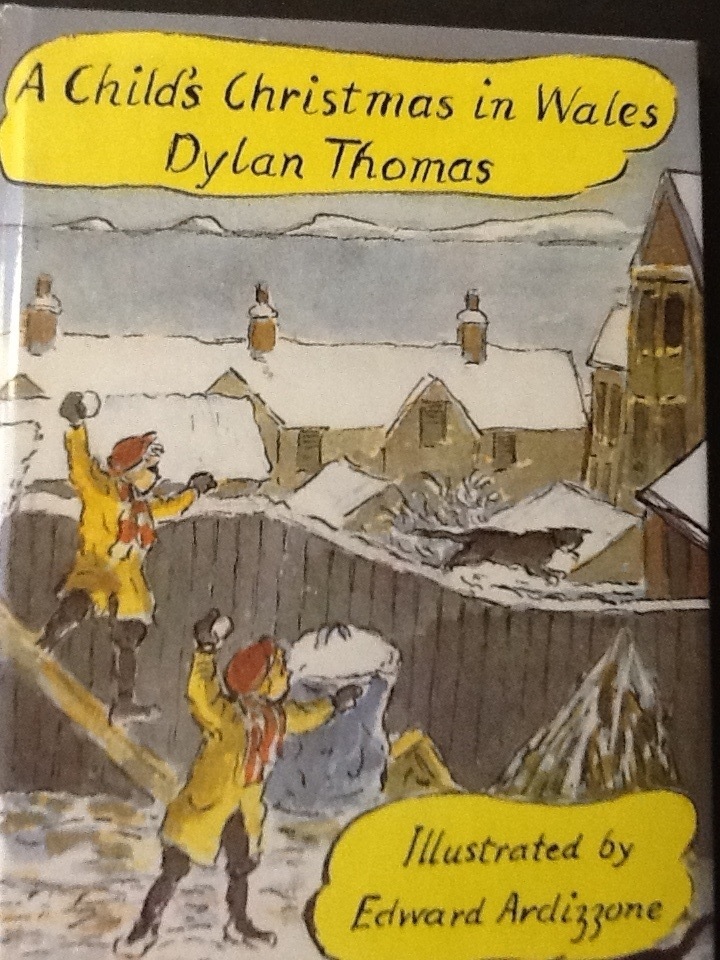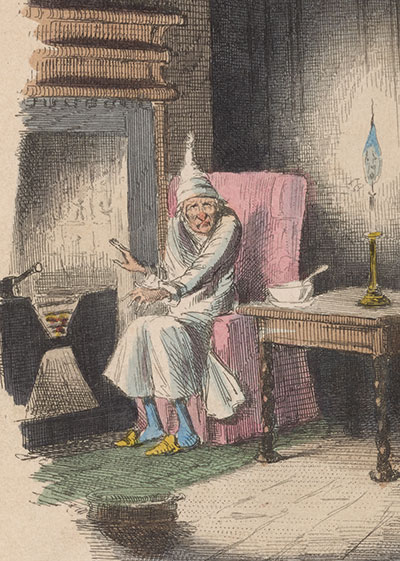Literature and Poetry
 Goosed: Those Years When Fate Takes a Hand By Julia Sneden, A SeniorWomen.com Tradition
Goosed: Those Years When Fate Takes a Hand By Julia Sneden, A SeniorWomen.com Tradition
Julia Sneden wrote: My only previous experience with goose occurred before we were married, in 1960. I was in Denmark, visiting with friends, and was invited to share the goose-liver stew that was made up of leftovers from their Christmas dinner of a few days before. It was absolutely delicious, but no one thought to enlighten me about the digestive effects of over-indulgence in such a rich dish. I wondered why I was the only one who took second helpings. I soon found out. more »
 The Morgan's Charles Dickens's A Christmas Carol: Christmas is nothing more than “a time for finding yourself a year older and not an hour richer”said Scrooge
The Morgan's Charles Dickens's A Christmas Carol: Christmas is nothing more than “a time for finding yourself a year older and not an hour richer”said Scrooge
Beginning a few years ago, the Morgan started advancing the Christmas Carol manuscript by one page each season. This year the manuscript is open to Scrooge’s vituperative remarks about Christmas, which, he believes, is nothing more than “a time for finding yourself a year older and not an hour richer.” For the obstinate Scrooge, “every idiot who goes about with ‘Merry Christmas’ on his lips, should be boiled with his own pudding, and buried with a stake of holly through his heart. He should! Scrooge’s nephew Fred counters with a spirited vindication of the holiday, “though it has never put a scrap of gold or silver in [his] pocket” “[it is] the only time I know of, in the long calendar of the year, when men and women seem by one consent to open their shut-up hearts, freely". more »
 Jill Norgren Writes: My Choices of Good Reads For The Past Year
Jill Norgren Writes: My Choices of Good Reads For The Past Year
Barack Obama writes with grace and honesty. Clarity defines his discussions of policy and politics ... and helps us to understand the strategies guiding the decisions of the new president-elect as Biden forms a government... Elizabeth Strout's stories are brilliantly observed and can leave you breathless with surprise. James McBride's main character runs us ragged in the 2020 mystery novel Deacon King Kong in the maelstrom of aging and loss. In each, there is the poignancy of older characters chasing life... Homeland Elegies by Pakistani-American playwright Ayad Akhtar’s bears some comparison with Olive, Again. It is described as a novel but is more comfortably thought of as linked stories... Douglas Stuart's Shuggie Bain evokes the chaotic domestic world of drinkers without a scintilla of sentimentality and The Brothers Mankiewicz is a well shaped biography based on new interviews and archival sleuthing. Read on for the entire look at these new reads. more »
 Serena Nanda Reviews Light in Dark Times: The Human Search for Meaning
Serena Nanda Reviews Light in Dark Times: The Human Search for Meaning
Alisse Waterston is a cultural anthropologist; the inspiration for the book was her own emotional and intellectual development as an anthropologist and an activist, but her search for meaning goes far beyond cultural anthropology, which she describes only briefly in terms of its relevance as a source of light in dark times. The book is a work of art as well as a narrative, enlivened by the charming sketches of the co-author, Charlotte Corden, and is rooted in an interdisciplinary intellectual immersion in historical and modern literature, philosophy, poetry, and social science. Waterston’s fictional and nonfictional encounters are focused on the widespread current political, economic and humanitarian crises. more »







